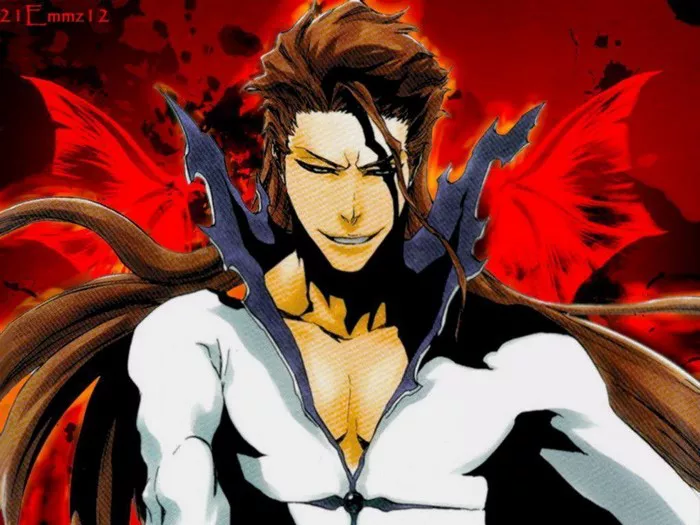In the world of anime, few characters are as complex and divisive as Sosuke Aizen from Tite Kubo’s Bleach. Initially introduced as a mild-mannered, well-respected captain within the Soul Society, Aizen’s subsequent betrayal reveals a multifaceted antagonist with grand ambitions and a manipulative streak. This article delves into the nuances of Aizen’s character development throughout the series, exploring whether he can be considered “good” by the series’ conclusion and what his journey tells us about the nature of morality and redemption in storytelling.
Aizen’s Initial Persona and Betrayal
When audiences are first introduced to Aizen, he is the picture of a benevolent and competent leader. This facade plays a crucial part in the early narrative of Bleach, setting the stage for one of the most shocking plot twists in anime history.
The Mask of Benevolence: Aizen’s initial appearance as a compassionate and wise captain is a calculated deception that fools both his fellow characters and the audience.
The Revelation and Betrayal: The turning point of Aizen’s character is his faked death and the revelation of his true intentions. His betrayal not only serves as a key plot driver but also redefines the moral landscape of the series.
Aizen’s True Motives
Understanding Aizen’s actions requires a deep dive into his motives, which are complex and evolve over the course of the series.
Power and Knowledge: At the heart of Aizen’s actions is his desire for power, stemming from a profound belief that he alone is capable of bearing the burdens of such strength. His goal to overthrow the Soul King points to a deeper disillusionment with the existing power structures of the Soul Society.
A Vision of a New World: Aizen’s methods are undeniably ruthless, yet they are driven by a utopian vision where he sees himself as the necessary arbiter of a new order. This blend of megalomania and visionary zeal makes him a particularly compelling character.
Aizen’s Abilities and Their Symbolic Representation
Aizen’s powers, particularly his zanpakuto Kyoka Suigetsu, which allows him to manipulate others’ senses completely, are symbolic of his manipulative nature.
Deception and Control: Aizen’s ability to control reality mirrors his psychological manipulation, underscoring his role as a master puppeteer who bends others to his will.
The Price of Power: As Aizen’s powers grow, so does his detachment from humanity. This evolution serves as a narrative tool to explore themes of isolation and the corrupting influence of power.
Redemption Arc: Fact or Fiction?
One of the most debated topics among Bleach fans is whether Aizen undergoes a true redemption arc.
Signs of Change: In the later parts of the series, particularly during the Thousand-Year Blood War arc, Aizen assists Ichigo and other protagonists, suggesting a possible shift in his character.
Alliance versus Redemption: Aizen’s cooperation with former foes is driven more by mutual interests than by genuine remorse, complicating the notion of his redemption.
Philosophical and Ethical Analysis
Aizen’s character arc invites viewers to explore philosophical and ethical questions about the nature of good and evil.
Relative Morality: Aizen challenges the binary perception of morality. His actions, although often villainous, are rooted in a critique of the inherently flawed laws governing the Soul Society.
The Anti-Hero: By the series’ end, Aizen embodies characteristics of the anti-hero archetype, blurring the lines between villain and savior.
Aizen’s Impact on Bleach and Anime Villain Archetypes
Aizen’s character has had a lasting impact on the narrative of Bleach and the archetype of villains in anime.
Redefining Villainy: Aizen’s complexity adds depth to the narrative of Bleach, providing a counterpoint to simpler villain archetypes.
Legacy in Anime: His character has influenced the development of antagonist roles in anime, promoting a trend toward more nuanced adversaries.
Conclusion: The Complexity of Aizen’s Morality
Sosuke Aizen remains one of the most intricately designed characters in Bleach, embodying themes of ambition, power, and the quest for a perceived greater good. Whether he can be considered “good” by the end of the series is a matter of perspective. His actions, while occasionally aligning with those of the protagonists, do not necessarily stem from a moral awakening. Instead, they highlight the complex nature of his character—a villain who is neither fully redeemed nor completely irredeemable. This complexity ensures that Aizen will continue to be a topic of discussion and analysis among fans and critics alike, cementing his place as a legendary figure in the anime world.

